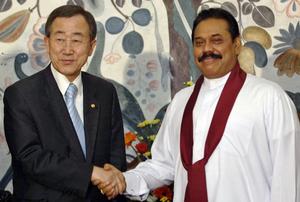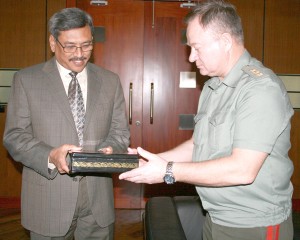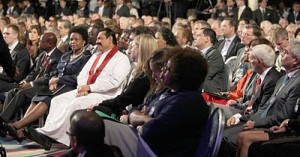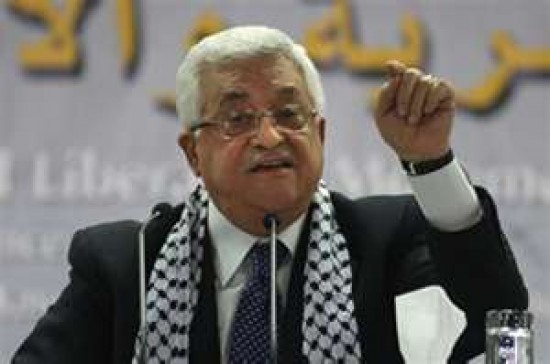Reconcile sooner rather than later
Disregarding summons
President Mahinda Rajapaksa disregarded the threats of legal summons to the United States when he went there to attend the UN General
Assembly meeting. The President had an opportunity to meet several world leaders during the official sessions of the General Assembly and also on the sidelines of the official events. He stated his case saying “My country has reason for concern with approaches tainted by an unacceptable degree of selectivity, which we have brought to the notice of the organizations in question in recent weeks. The developing world must keep a vigil against these irregular modalities which should be resisted through our collective strength.” Unlike on some previous occasions, he did not deliver his speech in Sinhala or Tamil, presumably because he wished to address the audience in the General Assembly and not his constituency back at home.
MR limiting stay to New York
It is reported that the President will be limiting his stay to New York City. Efforts have been made by sections of the Tamil Diaspora and international human rights organisations to bring members of the Sri Lankan government, including the President himself, before international courts. A former army general sent to Switzerland as a senior diplomat has recently returned to Sri Lanka after war crimes allegations were made against him. A few hours after President Rajapaksa made his speech at the UN General Assembly on Friday, a US Court delivered summons on Sri Lanka’s Deputy Permanent Representative, Major General Shavendra Silva, on charges relating to war crimes. A civil lawsuit against him has been filed by the American University Washington College of Law’s UNROW Human Rights Impact Litigation Clinic at the Southern District Court of New York.
Palestinian bid for statehood
Sri Lanka was however not at the centre stage at the United Nations which was devoted to the Palestinian bid for statehood through the

United Nations Secretary-General Ban shakes the hand of Sri Lankan President Rajapaksa at the presidential residence in Kandy
United Nations. The action of President Mahmoud Abbas of the Palestinian Authority to internationalise his people’s struggle for justice is significant in the context of efforts by sections of the international community to internationalise Sri Lanka’s own problems. The justification of the Palestinian letter to the UN Secretary General Ban-ki Moon requesting statehood was that over two decades of talks with Israel on that issue had not yielded a positive result. Sections of the international community did their best to prevent the Palestinians from taking their request to the UN, and warned of negative consequences if the Palestinians pursued this line of action.
Contrasting considerations
It is evident that with the Palestinians taking their problem to the UN, and thereby internationalizing it, the climate has turned favourable to the Palestinian cause. There was tremendous applause in the UN General Assembly when President Abbas made his speech. A quartet of world leaders, including former British Prime Minister Tony Blair and US Secretary of State Hillary Clinton have already been appointed to facilitate talks between the Palestinians and Israelis, and they have quickly prepared a road map and time table for working out a solution to the problem. The Palestinian strategy reveals how the internationalizing of some problems can work to the advantage of the weaker party to a conflict.
MR wants IC to protect smaller countries
In contrast to the Palestinian issue, the Sri Lankan government was successful in preventing the further internationalization of the allegation of war crimes against it. The question is for how long. Although a section of the international community tried their utmost to bring the issue before the UN General Assembly in New York and the UN’s Human Rights Council in Geneva, they were not successful. Despite the tabling of the report of the UN advisory panel on the violations of human rights in Sri Lanka to the UN Human Rights Council, this report was not taken up for discussion. However, there is a possibility the UN panel report will be tabled for discussion in March 2012 when the Human Rights Council meets next. In his speech to the UN General Assembly President Rajapaksa hinted at this effort and cautioned the international community on “the need to protect smaller countries in the developing world and to advance their interests vigorously.”
China, Russia likely support for Sri Lanka on war crimes issues
A wide range of countries have expressed their readiness support Sri Lanka at the UN’s Human Rights Council and other international

The Russian delegation comprising the officials of Russian Ministry of Defence met the defence secretary Gotabaya Rajapaksa at the Ministry of Defence premises in Colombo December 17, 2010. The delegation headed by Colonel General Vladimir Moltenskoy the deputy of the Commander in Chief of the Ground Forces in Russia
forums. Countries that have publicly supported Sri Lanka include Pakistan, Bangladesh, Cuba and Philippines. In addition, China and Russia, with their veto power in the UN Security Council, have supported Sri Lanka on more than one occasion. The principles they uphold are different from those of many Western countries. China for instance gives primacy to the principles of non-interference in the internal affairs of other countries, deference to national sovereignty and focuses on economic development as the way forward. There is also no likelihood of their support ending in the future. Most of the countries supportive of Sri Lanka have either been victims of terrorism or have internal conflicts themselves and would not wish to set precedents that they can fall foul of in the future. There are signs that Sri Lanka is capable of coping with the international pressures being piled upon it.
Future danger
Government Minister Nimal Siripala de Silva who represented Sri Lanka at the meeting of the UN Human Rights Council in Geneva said that Sri Lanka was strongly backed by African, Asian, Middle Eastern and Caribbean countries and by the member states of the Non Aligned Movement. The majority of governmental leaders from most parts of the world are of the view that terrorism cannot be tolerated and must be eliminated at whatever cost. However, the Minister was not complacent about the future and also said that there was the possibility of the issue of war crimes being taken up for debate at the General Assembly and at the next UNHRC session in March next year. He is reported to have said that Sri Lanka needs to counter the UN panel report in a concerted and effective manner at an International level because the country is still at risk of being hauled before the United Nations General Assembly or the UN Human Rights Council.
Success of Palestinian statehood is potential danger fro Sri Lanka
Indeed, the very success of the Palestinian bid for statehood at the UN General Assembly reveals a potential danger that could emerge for the
country in the longer term. The Palestinian success came after a period of more than twenty years of talking to successive governments in Israel and failing to achieve substantial progress. By way of contrast the attempt by human rights organisations and some countries to internationalise the Sri Lankan war crimes issue has only been strong for the past two or three years. Unlike in the case of Palestine, there is also no strong people’s movement within the country that is openly backing the international campaign. But this situation can change in the coming years.
People’s movement will support International demand for accountability
The diplomatic successes of Sri Lanka at the UN forums in New York and Geneva

U.S. President Barack Obama with Israeli Prime Minister Benjamin Netanyahu and Palestinian President Mahmoud Abbas in New York city on September 22, 2009. Photo EPA/JOHN ANGELILLO / POOL
should not be lost in delay or complacency as warned by Minister de Silva. They need to be built upon to face the challenges of the future that will undoubtedly come. The most formidable challenge will be a people’s movement for the democratic rights of ethnic minorities that resonates with the desire of people for good governance. Such a people’s movement is likely to also support the international demand for accountability in regard to the war, and the human rights violations that were committed by all the parties to the conflict over the years. This challenge may not come in the next year, as Minister de Silva has feared, but it will inevitably come within the next decade or in the more distant future.
Memories seldom die
The experience of other countries in which there were allegations of atrocities in the course of war indicates that memories seldom die. Today nearly seventy years after the end of the Second World War, the sense of grievance of the Chinese people due to the war with Japan is still present. Even though China and Japan are major trading partners, this long unresolved issue continues to smolder beneath the surface. It suddenly emerges in unpleasant clashes over territorial and other issues. The memory of injustice seldom fades from the victim. The problem is that the party that committed the atrocities tends to wish to bury the past and forget it. So it is hard for them to see the need for reconciliation as time passes. But without reconciliation there cannot be lasting peace. The challenge of reconciliation in Sri Lanka must be taken on by this generation, and not left for the succeeding ones.



September 29, 2011 at 10:51 am
Great article, well done